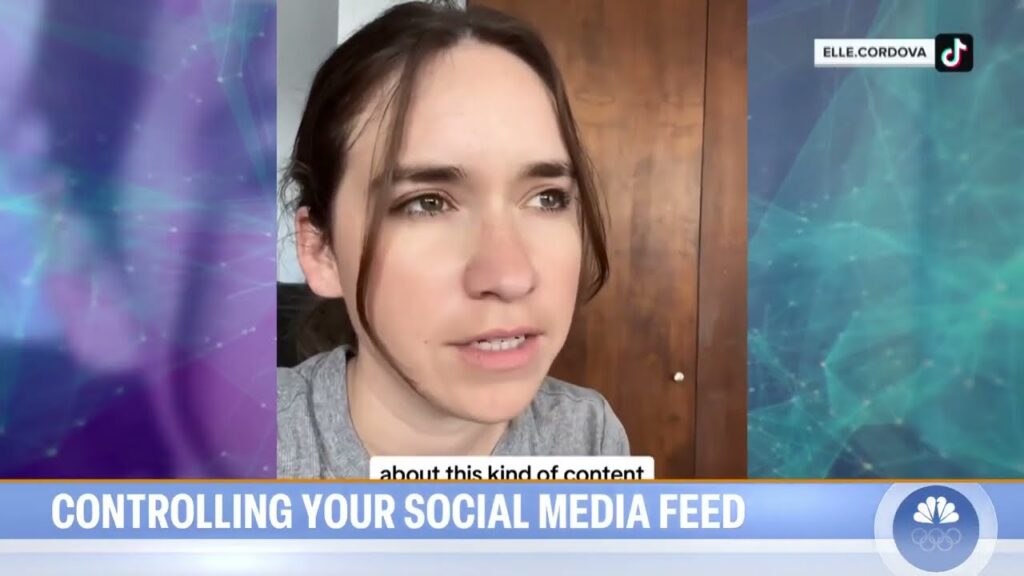In today’s digital age, social media platforms have become an integral part of our daily lives, shaping the way we consume and interact with content. At the heart of these platforms lie complex algorithms that determine what we see, what we engage with, and how we experience social media. These algorithms, designed to optimize user engagement and interaction, have a profound influence on various aspects of our online behavior and the broader social landscape.
Overview of Social Media Algorithms
Social media platforms, such as Facebook, Instagram, Twitter, and TikTok, utilize sophisticated algorithms to curate and deliver content to their users. These algorithms are designed to analyze vast amounts of data, including user interactions, preferences, and behaviors, to determine the most relevant and engaging content for each individual user.
The Role of Algorithms in Content Curation
The primary function of social media algorithms is to curate the content that users see on their feeds. By analyzing factors such as user engagement, interests, and interactions, these algorithms determine which posts, videos, or stories are most likely to be of interest to a particular user. This personalized content curation aims to keep users engaged and on the platform for longer periods, ultimately driving increased user activity and revenue for the platform.
Factors Influencing Algorithm Prioritization
Social media algorithms consider a variety of factors when prioritizing content, including:
- User engagement (likes, comments, shares)
- Timeliness of the content
- Relationship between the user and the content creator
- Relevance of the content to the user’s interests
- Multimedia elements (images, videos, etc.)
- Platform-specific engagement metrics (e.g., watch time on TikTok)
These factors are constantly evaluated and weighted by the algorithms to ensure that the most engaging and relevant content is surfaced for each user.
Algorithmic Transparency and User Control
The inner workings of social media algorithms are often opaque, with platforms typically keeping the details of their algorithms confidential. This lack of transparency has raised concerns about the fairness and accountability of these systems. While some platforms have introduced features that allow users to have more control over their content feeds, such as the ability to see “most recent” posts or “show more/less” from certain accounts, the overall level of user control remains limited.
Impact on User Experience

The influence of social media algorithms on the user experience is multifaceted and can have both positive and negative implications.
Personalized Content Curation
One of the primary benefits of social media algorithms is their ability to provide users with a personalized content experience. By analyzing user data and preferences, these algorithms can curate feeds that are tailored to the individual’s interests, leading to a more engaging and enjoyable user experience. Users are more likely to find content that resonates with them, fostering a sense of connection and relevance.
Filter Bubbles and Echo Chambers
While personalized content curation can be beneficial, it also has the potential to create filter bubbles and echo chambers. By prioritizing content that aligns with a user’s existing interests and beliefs, algorithms can inadvertently limit the diversity of information and perspectives that users are exposed to. This can lead to the reinforcement of existing biases and a narrowing of worldviews, potentially hindering personal growth and the exchange of diverse ideas.
Attention Manipulation and Addiction
Social media algorithms are designed to keep users engaged and on the platform for as long as possible, often through the use of techniques that exploit human psychology. Features like infinite scrolling, autoplay, and push notifications can lead to addictive behaviors and the prioritization of short-term engagement over long-term well-being. This manipulation of user attention can have negative impacts on mental health, productivity, and overall quality of life.
Misinformation and Disinformation Spread
The rapid spread of misinformation and disinformation on social media platforms is a significant challenge exacerbated by the influence of algorithms. These algorithms, designed to optimize for engagement, can inadvertently amplify the reach of sensational, emotionally charged, or factually inaccurate content. This can contribute to the spread of conspiracy theories, false narratives, and the erosion of trust in reliable information sources.
Influence on Content Creators

Social media algorithms have a profound impact on the experiences and opportunities of content creators, both individuals and businesses.
Content Visibility and Discoverability
Algorithms play a critical role in determining the visibility and discoverability of content on social media platforms. Creators who are able to create engaging, algorithm-optimized content are more likely to have their work surfaced in users’ feeds, leading to increased reach, engagement, and potential monetization opportunities. Conversely, creators who struggle to adapt to algorithm changes may experience a decline in their content’s visibility and engagement.
Algorithmic Bias and Inequities
Social media algorithms can exhibit biases that disadvantage certain creators, often along lines of race, gender, or other demographic factors. This can lead to an uneven playing field, where some creators are disproportionately favored or penalized by the algorithms, limiting their ability to grow their audience and potentially their livelihood.
Monetization and Platform Dependency
Many content creators rely on social media platforms for their primary source of income, either through platform-specific monetization programs or partnerships with brands. However, this dependence on a single platform’s algorithm can make creators vulnerable to sudden changes or shifts in algorithmic priorities, which can significantly impact their revenue and overall financial stability.
Adaptability and Algorithm-Driven Content Creation
To succeed on social media, content creators must constantly adapt their strategies to align with the evolving algorithms. This can lead to a focus on creating content that is designed to maximize engagement and algorithm-friendly metrics, rather than purely artistic or creative pursuits. The pressure to “game the system” can shift the creative process and the nature of the content produced.
Ethical Considerations
The pervasive influence of social media algorithms raises several ethical concerns that warrant careful consideration.
Privacy and Data Collection
Social media platforms collect vast amounts of user data, often without explicit consent or full transparency, to fuel their algorithmic decision-making. This raises questions about the ethics of data collection, storage, and usage, and the potential for privacy violations and the misuse of personal information.
Algorithmic Bias and Discrimination
As mentioned earlier, social media algorithms can exhibit biases that discriminate against certain individuals or groups, perpetuating societal inequities and marginalizing underrepresented communities. The lack of algorithmic accountability and the potential for unintended consequences highlight the need for greater oversight and transparency.
Manipulation and Deception
The ability of algorithms to influence user behavior and decision-making raises concerns about the ethical implications of such manipulation. Techniques like microtargeting, A/B testing, and the amplification of emotionally charged content can be used to sway public opinion, manipulate voting behavior, or exploit vulnerable individuals.
Transparency and Algorithmic Accountability
The opaque nature of social media algorithms and the lack of public understanding of their inner workings present challenges in terms of ensuring algorithmic accountability and transparency. Without clear and accessible information about how these systems work, it becomes difficult to hold platforms and algorithm developers responsible for their impacts on individuals and society.
Case Studies
To illustrate the real-world implications of social media algorithms, let’s explore a few case studies.
The Facebook Newsfeed Algorithm and the 2016 US Presidential Election
During the 2016 US presidential election, concerns were raised about the role of Facebook’s algorithm in amplifying the reach of misinformation and polarizing political content. The algorithm’s prioritization of engagement-driven content, combined with the rapid spread of false narratives, was believed to have contributed to the heightened political divisions and the spread of conspiracy theories.
TikTok’s Algorithm and the Suppression of Marginalized Voices
TikTok has been criticized for its algorithm’s apparent biases against certain marginalized communities. Reports have surfaced of the platform’s algorithm suppressing content from users with disabilities, members of the LGBTQ+ community, and individuals from racial and ethnic minorities, limiting their visibility and potential for growth.
Instagram’s Algorithm and the Impact on Mental Health
The pervasive influence of Instagram’s algorithm, which prioritizes content based on engagement metrics, has been linked to negative mental health outcomes, particularly among young users. The algorithm’s emphasis on visual perfection, social comparison, and the immediate gratification of likes and comments has been associated with increased feelings of anxiety, depression, and low self-esteem.
Future Implications
As social media algorithms continue to evolve and become more sophisticated, the future implications of their influence are both promising and concerning.
Advancements in Personalization and Recommendation Systems
Ongoing developments in machine learning and artificial intelligence are likely to result in even more advanced personalization and recommendation algorithms. While these advancements may improve the user experience and content discovery, they also raise concerns about the potential for further entrenchment of filter bubbles and the reduction of serendipitous exposure to diverse perspectives.
Increased Algorithmic Transparency and User Control
In response to growing concerns about the ethical implications of social media algorithms, there may be a push for greater transparency and user control. Platforms may be compelled to provide more detailed information about their algorithmic decision-making processes and offer users more granular control over their content feeds and recommendations.
Regulatory Oversight and Algorithmic Governance
As the influence of social media algorithms becomes increasingly recognized, policymakers and regulatory bodies may intervene to establish guidelines and frameworks for the responsible development and deployment of these systems. This could involve measures to address issues like algorithmic bias, data privacy, and the mitigation of harmful societal impacts.
Evolving Content Creator Strategies and Platform Diversification
To navigate the ever-changing landscape of social media algorithms, content creators may need to diversify their strategies and platforms, rather than relying solely on a single platform’s algorithm. This could lead to a more balanced and decentralized digital ecosystem, where creators have more control over their content and audience engagement.
Conclusion
The influence of social media algorithms is undeniable, shaping the way we consume, interact with, and experience online content. While these algorithms have the potential to enhance user experience and content discovery, they also raise significant ethical concerns and societal implications. As we continue to grapple with the complexities of these systems, it is crucial that we engage in open and informed discussions, advocate for greater transparency and accountability, and work towards the responsible development and deployment of social media algorithms that prioritize the well-being of individuals and society as a whole.

